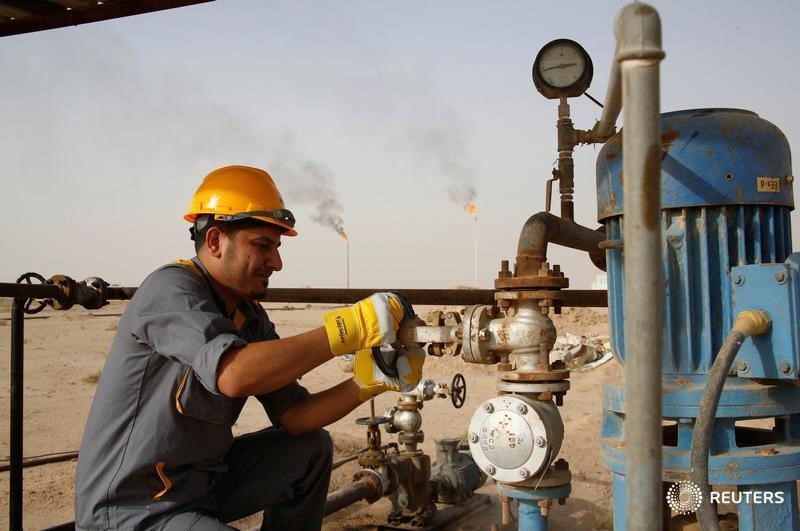JFrog stock rises as Cantor Fitzgerald maintains Overweight rating after strong Q2
By Barani Krishnan
Investing.com – Oil prices were little changed Monday on uncertainty over whether U.S. crude inventories fell or rose last week. The market opened to another tense week amid worries that China may end up buying Iranian oil, escalating its trade war with the United States.
New York-traded West Texas Intermediate crude settled up 43 cents, or 0.8%, at $54.93 per barrel.
London-traded Brent crude, the benchmark for oil outside of the U.S., was up four cents to $58.57.
WTI rallied sharply on Thursday and Friday, but still ended last week down 2% after data showing an across-the-board jump in U.S. oil stockpiles for the week ended Aug 2.
The U.S. crude benchmark also slumped on worries about the heightened trade war and fears that China could ramp up buying of Iran crude, spurring Tehran to produce heavily again despite U.S. sanctions.
Brent ended last week down 5.4%.
U.S. crude inventories rose by 2.4 million barrels in the week to Aug 2 versus forecasts for a draw of 2.9 million barrels. It was the first crude inventory build in eight weeks after seven prior draws totaling nearly 50 million barrels.
Gasoline inventories also jumped, by 4.4 million barrels for the week ended Aug 2, while distillate stockpiles increased by 1.53 million.
Analysts expect the U.S. Energy Information Administration to report a crude stockpile draw of 2.9 million barrels in its dataset for the Aug. 9 week, just as they did during the week to Aug 2.
But some are wondering if there’ll be another build instead, not just in crude but also gasoline.
“The weeks left in the U.S. driving season are starting to be counted and, with the gasoline stocks increasing, the RBOB gasoline crack to WTI is correcting lower,” said Olivier Jakob, founder of Zug, Switzerland-based oil consultancy Petromatrix.
Traders are also on the lookout for any sign of China cutting back on U.S. crude imports and ramping up on Iranian purchases instead.
If China starts buying Iranian crude in a big way, it could be the bane of oil bulls as weekly stockpiles could start surging again in the United States.
Data for the Aug. 2 week showed clearly what a substantial drop in exports could do to U.S. crude balances: A 710,000-barrel decline in exports contributed largely to a 2.4-million-barrel inventory build.
After U.S. President Donald Trump declared last week that he was “not ready” to make a trade deal with Beijing, Goldman Sachs (NYSE:GS) came out Sunday and said they no longer expected an agreement to be reached ahead of the presidential election in November 2020.
Goldman's economists said they expect the U.S. to move forward with further tariffs on Chinese goods on Sept. 1 and have “increased our estimate of the growth impact of the trade war”.
The International Monetary Fund (IMF), meanwhile, warned that Chinese economic growth will slow further if the trade conflict drags on.
The IMF also trimmed its forecasts for oil demand growth in 2019 and 2020 to 1.1 million and 1.3 million barrels per day respectively, following a similar move from the International Energy Agency.
